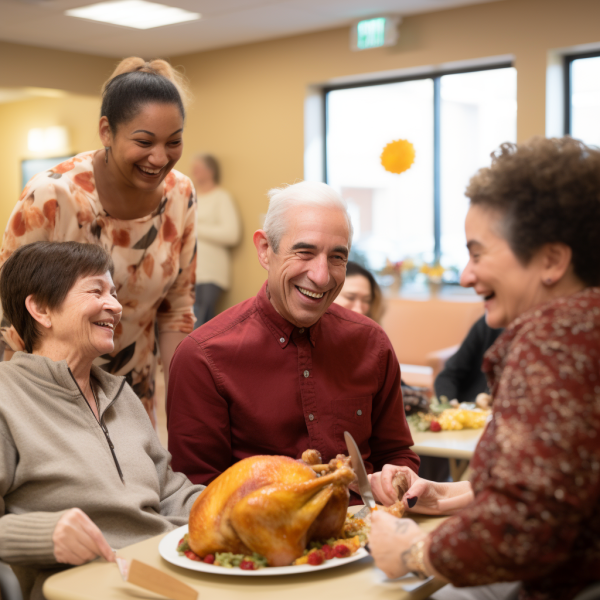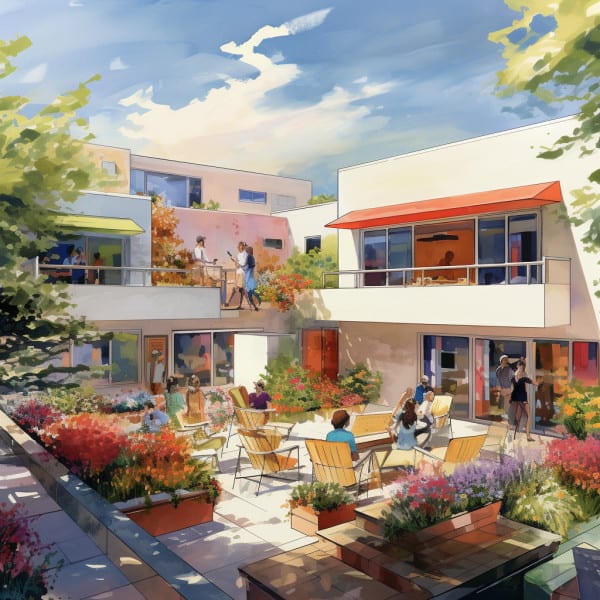Operating residential care facilities for the elderly (RCFEs) in California comes with its unique challenges and responsibilities. One critical aspect that demands careful attention is establishing and maintaining positive relationships with the residentsí families.† Building trust and open communication...
Operating residential care facilities for the elderly (RCFEs) in California comes with its unique challenges and responsibilities. One critical aspect that demands careful attention is establishing and maintaining positive relationships with the residentsí families.†
Building trust and open communication channels with families can significantly enhance the overall well-being of elderly residents and contribute to a harmonious living environment. This article will delve into key strategies to cultivate positive connections with RCFE residentsí families in California.
If you are on your journey to become a certified RCFE administrator, this guide can help you build an effective community at your future RCFE. During this journey, ensure you have the appropriate study guides and find the right material to take an RCFE class and be successful. Some of the topics in this article will be touched on during your studies.
†
The Importance of Family Involvement
The transition to an RCFE can be a challenging time for both residents and their families. Acknowledging the significance of family involvement in the lives of your residents is the first step toward creating a supportive and caring community within the facility.†
Families often play a crucial role in providing emotional support, sharing valuable insights into residentsí preferences, and contributing to the overall quality of life of their loved ones.
†
†
Open and Transparent Communication
Effective communication is the cornerstone of any successful relationship. Establishing open and transparent channels of communication with residentsí families is vital.†
Regular updates through mediums such as newsletters, emails, or scheduled family meetings help keep families informed about the well-being of their loved ones. Clear and transparent communication fosters trust and reassures families that their relatives receive the best care.
†
Personalized Care Plans and Involvement†
Developing personalized care plans for each resident and involving families in the process helps create a sense of partnership. This also helps assure the family that the individual needs of their family member are being addressed and the resident is not treated as only one among many.
Encourage families to share information about the residentís preferences, hobbies, and life history. This not only aids in tailoring care plans but also allows staff to engage residents in activities that bring them joy and fulfillment.†
Regularly updating families on their loved oneís progress and involving them in decision-making processes reinforces a collaborative approach to caregiving.
†
A New Home†
Consider that this will be each residentís new home. As an RCFE administrator, it is easy to fall into viewing the RCFE as a facility and business, seeing your RCFE from the organizational level. But for each resident, it is their home, and they are away from family.
The communal areas within the facility should boast a welcoming and aesthetically pleasing environment. Well-tended plants add to the overall appeal, and residents have personalized their rooms with cherished items such as photos and mementos. If possible, provide rooms with windows with pleasant views of the surroundings.
†
Empathy and Compassion
Empathy and compassion are indispensable qualities in the caregiving profession. Staff at RCFEs must demonstrate understanding and sensitivity when interacting with residentsí families. Below are key points about building a culture of care at your RCFE:
Demonstrating empathy helps build a positive rapport and establishes a culture of care within the facility. Acknowledge the emotional challenges families may face when transitioning their loved ones into residential care and offer support.† Provide a sense of validation and support regarding their concerns, and be careful not to diminish their problems when you provide reassurance about certain subjects.† Ensure staff are trained and able† to identify when residents may need extra help. For example, consider these 7 ways to help seniors deal with depression. Creating a culture of care among your staff also contributes to their job satisfaction. Genuine care and concern for residents is often how staff members find their work meaningful. Not only does this help build a better RCFE, but helps ensure staff retention.†
Cleanliness
Top RCFES prioritize the well-being and safety of their residents. There are few areas where this priority is communicated as strongly to families and residents as through keeping your RCFE clean. Nothing says ĎWe donít careí like a dirty, broken-down facility.
This commitment is evident in the allocation of resources towards robust housekeeping, custodial services, and proficient maintenance staff. This will also require RCFE administrators to check and ensure standards are followed.
In addition to these benefits, maintaining a cleanliness standard is part of your RCFEís obligation per California regulations. Learning about these regulations will be part of the process of obtaining an RCFE certificate . Also, when the time comes, ensure your licensure application is correctly filled out so you do not pay more than needed for your RCFE application fee.
†
Family Support Groups
Establishing family support groups within the RCFE helps create a sense of community among families facing similar situations. These groups provide a platform for sharing experiences, insights, and coping strategies.†
By fostering a supportive environment, families can develop a network of understanding and empathy, ultimately contributing to a more positive atmosphere within the facility.
†
Regular Family Engagement Activities
Organizing regular family engagement activities can strengthen the bond between residents, their families, and the RCFE staff. These activities could include family days, workshops, and events encouraging interaction and shared experiences. Creating a sense of community not only benefits the residents but also facilitates positive relationships between families and the caregiving team.
†
Celebrating Milestones
Acknowledging and celebrating residentsí milestones is a great way to involve families in the positive aspects of their loved oneís life in the RCFE. Whether itís a birthday, an anniversary, or a personal achievement, organizing celebratory events demonstrates a commitment to holistic well-being and creates cherished memories for both residents and their families.
Highlighting success stories within the RCFE can be a powerful way to engage families positively. Whether itís a residentís remarkable recovery or a heartwarming interaction between residents and staff, sharing these stories through newsletters or on the facilityís website helps foster a sense of pride and community among families.
†
Training Staff in Family Relations
Staff training in family relations is essential for ensuring consistent and effective communication. Training should cover effective listening, conflict resolution, and understanding the emotional needs of families. Equipping staff with the skills to navigate complex family dynamics contributes to a more positive and harmonious environment within the RCFE.
†
Addressing Concerns Promptly
Issues and concerns are inevitable in any caregiving setting. The key is to address them promptly and efficiently. Establish a straightforward process for families to voice their concerns and provide feedback.†
Actively listen to their input, take their concerns seriously, and communicate the steps being taken to address the issues. This proactive approach demonstrates a commitment to continuous improvement and fosters trust among families.†
Create a systematic method for promptly and empathetically addressing concerns from families and residents. This helps ensure nothing falls through the cracks as concerns arise.†
†
Utilizing Technology for Communication
In the digital age, leveraging technology can enhance communication between RCFEs and residentsí families. Consider implementing a secure online portal or app that provides real-time updates, event calendars, and a platform for communication.†
Using available technologies not only improves transparency but also standardizes and streamlines sources of important communication for families.
†
Conclusion
In conclusion, good relationships with residentsí families are crucial for RCFEs. Families play a pivotal role in the functioning of your RCFE. Open communication, personalized care plans, and a culture of empathy are foundational. Prioritizing cleanliness, family support groups, and regular engagement activities contribute to a positive atmosphere.†
Addressing concerns promptly and utilizing technology enhances transparency and communication efficiency. Additionally, creating positive relationships with RCFE residentsí families is a multifaceted and ongoing journey. Building these connections with families is not only a professional duty but a heartfelt commitment to enrich the lives of your elderly residents.
†
About Assisted Living Education
†
Assisted Living Education has been operating in and improving the growing senior care industry for over 15 years.†
Founded by certified RCFE administrators, Jane Van Dyke-Perez and Bill Perez, we have licensed more than 1,100 assisted living facilities and built close relationships with the California Department of Social Services, assisted living managers, owners and industry professionals.
As senior living care educators ourselves, we strive to contribute our knowledge and skills to continually improve senior care and the satisfaction of those working in the industry.†
Contact us to learn more.†
†
The post How to Build Positive Relationships with RCFE Residentsí Families appeared first on Assisted Living Education.










